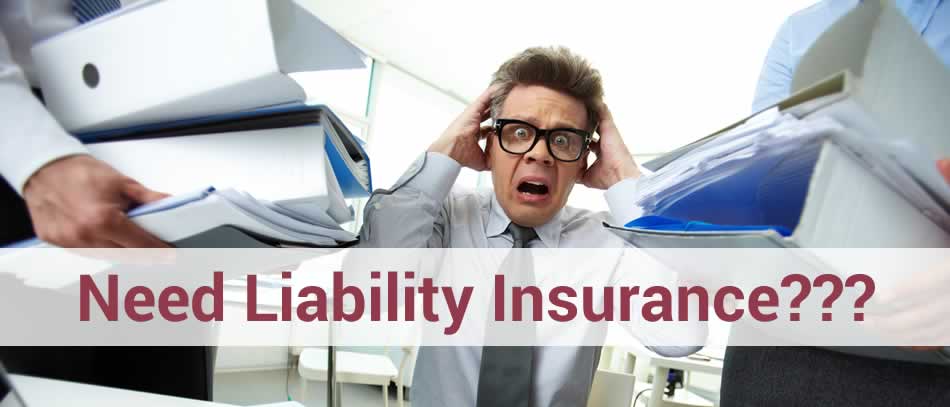 Liability and Insurance
So, here we are. Living in a world where artificial intelligence helps write emails, drive cars, answer customer complaints (well… tries), and maybe even recommends your next guilty pleasure on Netflix. AI is everywhere. It’s fast, it’s smart, and—let’s be honest—it’s also kind of weirdly unpredictable. Now, here's the real issue: what happens when AI messes up? Like, really messes up? Let’s say your smart assistant accidentally sends a passive-aggressive email to your boss. Or your AI-powered car gets confused between a stop sign and a pizza billboard (don’t laugh—it’s not entirely impossible). Who’s responsible? You? The programmer? The company who built it? The robot itself? Well… unless you’ve got a really creative legal team (or you're in a sci-fi movie), the robot’s not taking the fall.
That’s where liability insurance steps in—wearing its metaphorical cape. es. I know, it’s not the sexiest topic. But hear me out. Liability insurance is basically the adult version of having a safety net. It’s what covers you when something you didn’t intend to go wrong, well… goes wrong. And now that AI is doing more and more things for us—like analyzing medical scans, approving loans, or operating massive warehouse robots—it’s raising some pretty big questions. Like: If AI causes damage, is it your fault for using it? Totally fair question. And if you’re a business owner using AI—whether it’s for automation, customer service, or even just analytics—you’ve probably had a little voice whisper in your head, “But what if this goes wrong?” Let’s face it: AI doesn’t have common sense. It doesn’t have ethics. It doesn’t have vibes. It just has data and patterns. And when it goes off-track, things can get messy. Here’s the good news: You don’t need to live in fear of a lawsuit every time your chatbot gets snarky. The solution? Make sure you’ve got liability coverage that actually understands the 21st century. Glad you asked. Because there are smart moves you can make, starting today: Talk to your insurer. Not just a generic convo. Ask specific questions like, “Does my policy cover AI-related incidents?” You’d be surprised how many don’t… yet. Final Thought: It’s Not About Fear. It’s About Being Ready.AI isn’t out to get you. It’s not Skynet (at least… not yet). But it is a powerful tool, and like any tool, it comes with risk. Liability insurance won’t make your AI perfect, but it can help you sleep better at night knowing that if something does go haywire, you’re not standing there alone, holding the bag (or the robot’s broken arm). Individuals and businesses cannot avoid acquiring liabilities as they grow and interact with the rest of the world. After all, the term liability basically means legal responsibility. This usually refers to the legal responsibility to pay for any harm or damages caused by the person or business. Normally, liability specifically refers to the harm or damage caused by a sudden, unexpected accident due to someone’s negligence. However, it can also refer to the harm or damage caused gradually through someone’s negligence, omissions, and errors. Since no one is perfect, everyone has the potential to cause this type of harm and damage. Insurance provides mobility protection Just as the hermit crab’s shell protects it against the perils of mobility, Motor Liability insurance provides protection against the mobility risks for people. It makes it easier for drivers to afford to pay for any injuries, deaths, or property damage caused by road traffic accidents. And there are numerous mobility risks for people. Statistics have revealed that a driver is likely to have at least one accident within the first five years of being licensed. On an average day, a road traffic accident occurs about every two minutes, if not more frequently. According to 2008 statistics, 8.7 people die per day in the UK due to road traffic accidents. However, not every accident leads to a fatal death. Most accidents just result in injuries or property damage, or a combination of injury and property damage. Due to the high rate of motor vehicle accidents, Third Party motor liability insurance is compulsory in the UK. Insurance permits business growth A hermit crab’s shell also provides a safer environment for growth in a world filled with predators and competition. The business world is also filled with potential predators and competition. Having insurance covers permit the business to grow and expand by permitting it to take bigger risks than could be easily undertaken otherwise. For instance, having Employers’ Liability permits a person to form a business that employs other people. Due to the high rate of work-related accidents, Employers’ Liability is compulsory for most employers, so having a large business is legally impossible without it. However, many non-mandatory types of insurances also help to provide this safer business environment. Public and Product Liability covers allow a firm to safely offer more services and products to the general public. Having Professional Indemnity or Tradesman Liability opens more opportunities to gain income, as these are frequently pre-conditions of employment in certain types of professions. Moreover, Directors’ & Officers’ Liability covers make it simpler to attain and retain better qualified company board members. Copyright liabilityinsuranceuk.org.uk 2011 All Rights Reserved |